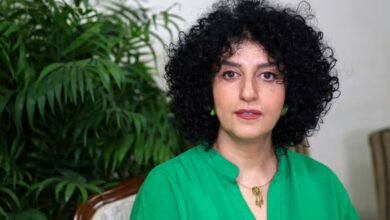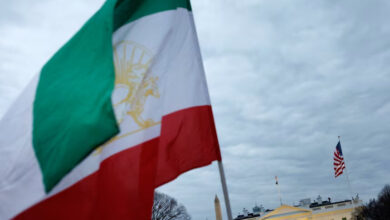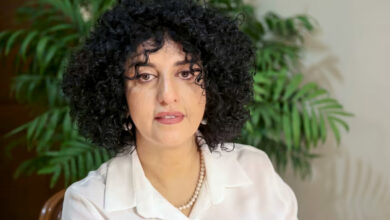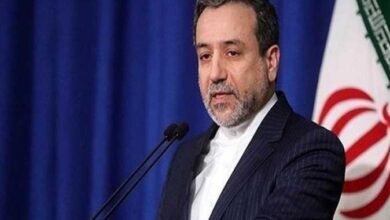While the world’s, almost undivided, attention was given to the Iranian events last week, the Egyptian (both state-owned and independent) press focused instead on local issues, that varied from national football team matches, health crisis and the usual parliamentary and presidential follow ups.
On Wednesday the state-owned papers’ front pages carried news of the dissolution of parliament by presidential decree, following the proposed amendments to devote a quota of seats to women-only reps. H1N1 also continued to be a news generator with the discovery of new cases, amid reports of a potential risk for the spread of plague. Yet, Al-Ahram was quick to quote Prime Minister Ahmad Nazif on its front page assuring the public, “Egypt is plague-free.” Al-Gomhorriya ran statements by the Health Minister Hatem el-Gebali and praised the “tight restrictions imposed by the (Health) Ministry to contain the plague at Egypt’s western borders.”
Independent daily Al-Dustour shocked its readers with a front page headline on Wednesday: “No Gamal, No Muslim Brothers.. We Want Omar Suleiman” devoting a special issue to the question of succession in Egypt, noting a new blog that advocates Egypt’s spy chief to succeed the 81-year-old president. Al-Dustour also ran a special feature on “Secret Business of Police Stations,” detailing alleged cases of corruption by police corporals.
Iranian news was still hard to find on the following day as the state owned publications gave expanded coverage of the summit meeting including the presidents of Egypt, Libya and Algeria, with almost identical headlines praising the meeting as an effort for “Arab unity.” In addition, the annual national drama called Thanaweya ‘Amma, the final year exams of secondary school seniors, featured strongly in Al-Ahram and all other publications, with student complaints about the “difficulty” of exams, cases of nervous breakdowns in examination rooms, etc.
Regional news remained eclipsed on Thursday as the independent daily Al-Shorouk broke an exclusive about “preparations by the National Democratic Party’s Policies Secretariat to choose the presidential candidate for the 2011 elections in the coming weeks,” with almost certain expectations the candidate would be Gamal Mubarak, the president’s son. The head of the Upper House, Safwat el-Sherif, senior NDP member, called in a local TV show in response denying the news. Meanwhile Al-Dustour focused on the country’s health crisis with H1N1 and the fear of the “coming plague.” The paper also had special investigative feature on Egyptian children used in sex trade and crime–a recurring theme in the local press.
Over the weekend the state owned press continued to devote central coverage to presidential news including the fact that President Mubarak wrote an Op-Ed for the Wall Street Journal on the peace process in the Middle East, that was translated later into Arabic and published front page in the Egyptian state owned publications.
In contrast to the local press, the Iranian events were the dominant theme among the country’s social media networks. Egyptian bloggers disagree on most things especially when it comes to regious issues. Iran was no exception.
While some blogs, like Bikya Masr and Egyptian Chronicles were providing around the hour updates from news wires, blogs, in addition to commentary, Twitter remained the main tool for dissemination of information and for polemics between the actors of a polarized Egyptian cyberspace.
Right before the elections the blogosphere was divided between those who supported Ahmadi Nejad and those who were behind Moussavi. To the surprise of some, support for Nejad mainly came, not necessarily from Islamists, but from radical leftist and secular nationalist bloggers citing Nejad’s anti-Imperialist stands vis a vis the US, his support for the Palestinian and Lebanese resistance movements, and his populist agenda which pitted him against Moussavi who was regarded by those bloggers as soft on the US and as the representative of Iran’s affluent middle and upper classes. Yet, sympathy for Moussavi as a reformist and as someone deemed less “religiously extremist” than Nejad vibrated across the local cyberspace. This was evident as most of the Egyptian bloggers, at least the heavy weights, were quick to disseminate news out of Moussavi’s camp about the vote rigging allegations.
Over the week the cyberspace turned green, with many bloggers coloring their avatars in solidarity with the Iranian protestestors. They posted videos and photos of police crackdowns, reTweeted updates from the #iranelection Twitter stream. But other bloggers remained skeptic of Moussavi’s allegations, and focused on reactions from the Western governments and media channels (like CNN and BBC) regarding the Iranian events, comparing the coverage to that of Palestine or countries deemed as “US allies.” NawaraNegm tweeted denouncing the “colored revolutions” with pro-US hidden agendas, yet expressed sympathy with the protestors against police brutality, Ghafari provided updates from media outlets making no secret where he stood. “Down with Nejad, the dictator,” he tweeted. “I wish that Nejad will be defeated…”
“Such movement in Iran is a threat to the Arab regimes if learnt by or exposed to people,” said blogger Eman Abdel Rahman, who was also among the active Egyptian bloggers in disseminating the news, comparing the lack of coverage in the local press. “nearly none imagined that what started would have been escalated, like how it is now! Only those who were living inside the protests on Twitter felt its impact from day one.”
Egypt




